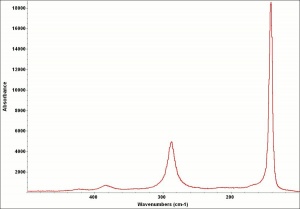Difference between revisions of "Massicot"
| Line 1: | Line 1: | ||
== Description == | == Description == | ||
| − | A heavy yellow powder composed of [[lead%20monoxide|lead monoxide]]. Massicot is the name used for both the native mineral as well as the lead monoxide product made by heating lead carbonate to 300C. [[Litharge|Litharge]], another crystalline form of lead monoxide, is the oxidized product of molten lead that has been stirred or atomized to incorporate air then cooled and ground to form the yellow powder. Litharge tends to be slightly more orange than massicot due to the presence of small amounts of [[lead%20tetroxide|red lead oxide]]. Lead monoxide has been used as a drier in oil and as a low-fire flux in making ceramics and glass. It was also used as a yellow pigment in paints and glazes. Thin layers of lead monoxide produce iridescent colors on [[brass|brass]] and [[bronze|bronze]]. It has also been used as a filler for [[rubber | + | A heavy yellow powder composed of [[lead%20monoxide|lead monoxide]]. Massicot is the name used for both the native mineral as well as the lead monoxide product made by heating lead carbonate to 300C. [[Litharge|Litharge]], another crystalline form of lead monoxide, is the oxidized product of molten lead that has been stirred or atomized to incorporate air then cooled and ground to form the yellow powder. Litharge tends to be slightly more orange than massicot due to the presence of small amounts of [[lead%20tetroxide|red lead oxide]]. Lead monoxide has been used as a drier in oil and as a low-fire flux in making ceramics and glass. It was also used as a yellow pigment in paints and glazes. Thin layers of lead monoxide produce iridescent colors on [[brass|brass]] and [[bronze|bronze]]. It has also been used as a filler for [[rubber|rubber]] and to produce artificial [[tortoiseshell|tortoiseshell]] and [[horn|horn]]. |
== Synonyms and Related Terms == | == Synonyms and Related Terms == | ||
Revision as of 11:14, 6 August 2020
Description
A heavy yellow powder composed of Lead monoxide. Massicot is the name used for both the native mineral as well as the lead monoxide product made by heating lead carbonate to 300C. Litharge, another crystalline form of lead monoxide, is the oxidized product of molten lead that has been stirred or atomized to incorporate air then cooled and ground to form the yellow powder. Litharge tends to be slightly more orange than massicot due to the presence of small amounts of red lead oxide. Lead monoxide has been used as a drier in oil and as a low-fire flux in making ceramics and glass. It was also used as a yellow pigment in paints and glazes. Thin layers of lead monoxide produce iridescent colors on Brass and Bronze. It has also been used as a filler for Rubber and to produce artificial Tortoiseshell and Horn.
Synonyms and Related Terms
lead monoxide; masicote (Esp.); litargirio (Esp.); massicot (Fr.); massicote (Port.); plumbous oxide; plumbic ocher; fiallolino; giallorino; Flemish yellow; masticot; lead ocher
Risks
Toxic by inhalation or ingestion. Skin contact may cause irritation or ulcers. Carcinogen, teratogen, suspected mutagen.
Millipore Sigma: SDS
Other Properties
Soluble in acetic acid, dilute nitric acid and alkalis. Insoluble in water and ethanol. Turns gray on exposure to sulfur fumes and light.
| Composition | PbO |
|---|---|
| CAS | 1317-36-8 |
| Melting Point | 888 |
| Density | 9.40-9.53 |
| Refractive Index | 2.51; 2.71; 2.61 |
Resources and Citations
- R. J. Gettens, G.L. Stout, Painting Materials, A Short Encyclopaedia, Dover Publications, New York, 1966 Comment: Yellow lead monoxide has been found in sites from predynastic times in Egypt....Pliny described the preparation of both litharge and massicot....In modern times, massicot is not used as a paint pigment
- Ralph Mayer, A Dictionary of Art Terms and Techniques, Harper and Row Publishers, New York, 1969 (also 1945 printing) Comment: Massicot was used as an artists pigment from the 15th c. to the end of the 18th . or the early 19thc
- R.D. Harley, Artists' Pigments c. 1600-1835, Butterworth Scientific, London, 1982
- Thomas B. Brill, Light Its Interaction with Art and Antiquities, Plenum Press, New York City, 1980 Comment: Massicot is essentially absent from paintings after the thirteenth century but was used in very early times (400BC in Egypt)...
- The Dictionary of Art, Grove's Dictionaries Inc., New York, 1996 Comment: "Pigments"
- Wikipedia: http://en.wikipedia.org/wiki/Massicot (Accessed Feb. 2, 2006)
- Dictionary of Building Preservation, Ward Bucher, ed., John Wiley & Sons, Inc., New York City, 1996
- G.S.Brady, Materials Handbook, McGraw-Hill Book Co., New York, 1971 Comment: p. 445
- Susan E. Schur, Conservation Terminology: A review of Past & Current Nomenclature of Materials, Technology and Conservation, Spring (p.34-39); Summer (p.35-38); Fall (p.25-36), 1985
